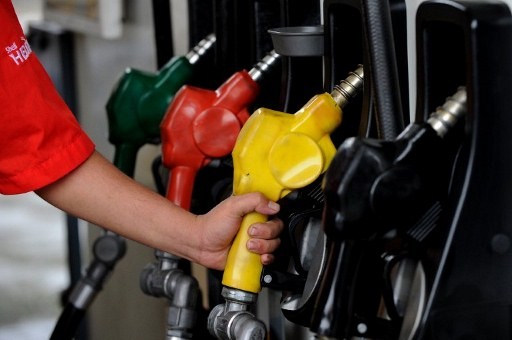Fuel prices unchanged in Visayas, Mindanao
Motorists outside Luzon are still enjoying pretax reform law fuel prices as filling stations in the Visayas and Mindanao are taking more time to sell all their old stocks, according to an industry source.
Across the country, prices of diesel and gasoline have gone up by about P4 a liter since Jan. 1 amid the combined effects of the new tax regime, upward pressure from winter demand in the northern hemisphere, and efforts by crude oil producers to raise prices by cutting output.
Even then, there may still be some fuel stations in Luzon that are still not implementing higher excise for gasoline and new excise for diesel.
Old stocks
“Yes, probably most of our filling stations are by now reflecting TRAIN (Tax Reform for Acceleration and Inclusion) at the pump, but there are still many stations that still have old stocks (that were not subject to the new excise tax),” said a middle-level executive of a major petroleum company, who declined to be identified for not having the authority to disclose official figures.
“Stations that are already implementing the TRAIN law are all in Luzon,” he said. “At least, we have not received reports (that our stations) from outside Luzon (are now doing so).”
Diesel up thrice
He said the speed at which pre-TRAIN stocks would be depleted depended on the volume of a station’s stock and consumer demand.
Since Jan. 1, oil companies have raised the prices of diesel three times for a total of P1.75 a liter. Prices of gasoline rose twice, resulting in an increase of P1 per liter.
Under the first year of the TRAIN Act, which is this year, taxes on gasoline will rise by P2.97 a liter, including VAT. Before the TRAIN law, gasoline was levied a total of P4.87 a liter.
Diesel will now be taxed at P2.80 a liter, including VAT.
At the pump, diesel would have moved up by P4.55 a liter and gasoline by P3.97 a liter with the combined effects of the new tax law and price movements in the international market.
DOE monitoring
Based on monitoring by the Department of Energy (DOE), diesel prices in Metro Manila without the effects of the TRAIN Act ranged from P34.10 to P39.20 a liter.
Prices of gasoline with an octane rating of 95 did not change and remained at P43.85 to P53.71 a liter.
Taking into account the effects of the new tax law, diesel prices now range from P36.90 to P42.00 a liter, while those of gasoline (95 octane) range from P46.82 to P56.68 a liter.
Along Mercedes Avenue in Pasig City, Pilipinas Shell now sells diesel at P38.00 a liter and gasoline at P50.92. The station shows a tarpaulin sign that says it is implementing the TRAIN law.
Different prices
About 200 meters away, Petron Corp. sells diesel at P37.20 a liter and gasoline at P47.62.
About 150 meters farther, PTT Philippines retails diesel at P35.20 a liter and gasoline at P48.55.
A PTT Philippines official said the company was still not implementing the new tax law as its pre-TRAIN stock had yet to run out.
7 companies
Based on DOE’s monitoring on Jan. 16, diesel prices ranged from P27.65 a liter (Flying V) to P33.22 a liter (Petron). Gasoline prices ranged from P41.20 to 48.30 a liter (Petron).
DOE’s monitoring data provide figures from seven companies—Petron, Shell, Chevron (Caltex), Seaoil, Flying V, Unioil Petroleum and Total.
Over the past 12 months, diesel prices have gone up by about a third or P9 to P10 a liter due to the TRAIN Act.
Similarly, prices of gasoline have gone up by P6 to P8.50 a liter, an increase of about one-tenth.
Output reduction deal
The price increases come as crude oil producers — members of the Organization of Petroleum Exporting Countries (Opec) and non-Opec members — have extended an agreement to cut down output.
The International Energy Agency (IEA) observed that crude producers had been “de-stocking” at 500,000 barrels daily in 2017, which they want to maintain in 2018.
The Paris-based IEA also noted that crude oil prices breached the $65-a-barrel level last December for the first time since 2015.
More recently, crude oil prices are ranging from $65 to $70 a barrel, up from about $55 at the end of 2016.
